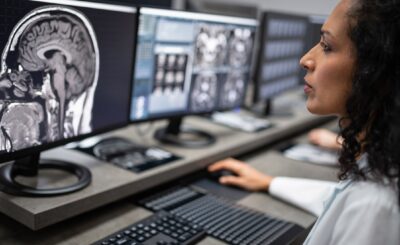Chronic aches, pains, and cramps can be caused by various factors. Pain and any type of discomfort is the body’s way of letting you know that something needs attention. Certainly, the normal aging process comes with a mix of aches, but they should not be debilitating or too uncomfortable that they interfere with your daily activities.
We can age gracefully if we condition our bodies to be strong and fit. However, most people ignore the signs of pain and remain unaware of what it means for your overall health.
What is Chronic Pain?
Pain is the body’s normal response to an illness or some type of injury. It serves as a warning that something needs to be addressed. When the body comes back to balance or heals, the pain goes away.
That is unless it becomes chronic, which means the pain remains even though the root cause has been corrected. Chronic pain is defined by a period of three months or more. This type of pain is usually experienced daily and takes a physical and emotional toll on your life.
Some people that have chronic pain may develop other conditions such as anxiety and depression, along with sleep disturbances and digestive issues.
What Causes Chronic Pain?
In some cases, chronic pain stems from an initial injury, surgery, or illness. Some researchers have found that chronic pain results from nerve damage. Once the nerves are injured, the pain becomes more intense and lasts longer. When this occurs, the healing process is much more in-depth than just healing the original cause.
Other cases of chronic pain do not involve an initial injury. It is hard to say what initiates pain in certain people. Some common causes include health conditions such as:
- Inflammation
- Fibromyalgia
- Chronic fatigue syndrome
- Lyme disease
- Cancer
- Ulcers
- Other conditions
There could be multiple reasons or a combination of them that causes a person to experience chronic pain. Each individual is unique and must be assessed by a physician that uses a holistic approach to diagnose.
A great doctor knows that it is a combination of several factors that cause a particular manifestation in an individual. Other causes of chronic pain that are related to lifestyle include:
- Poor posture leading to a misaligned spine
- Musculoskeletal injuries
- Repetitive stress injuries
- Wearing high heels
- Sleeping on an uncomfortable mattress
- Improper movements and lifting
- Many other factors
The Psychological Cause of Pain
Although pain is a physical experience, it can be traced to psychological factors such as anxiety and depression. This type of pain is called psychogenic and it is as real as other chronic pain caused by physical conditions.
Psychogenic pain is much harder to treat and requires a more extensive assessment. Oftentimes, fear, out-of-control emotions, and mental disease are the culprit of this condition. This type of pain usually manifests in headaches, muscle pain, back pain, chest pain, and abdominal pain. Chronic cramps are a form of pain and are classified in the same group as chronic aches and pains.
Consequences of Untreated Chronic Pain
Besides feeling miserable, chronic pain decreases your overall quality of life. All aspects of your life can be affected such as missed workdays, lack of social interactions, poor nutrition, and underachievement in all areas of life.
The following points are worth mentioning as they may be experienced by people who leave chronic pain untreated.
- Decreased mobility
- Weakened immune system
- Impaired mental focus and concentration
- Anorexia and other eating disorders
- Sleep disturbances
- Compromised relationships and social commitments
- Financial instability due to interruptions at work
The sad part about chronic pain is that it is commonly treated incorrectly. Many people simply take medications to take away the discomfort, but without addressing the root cause. Oftentimes, patients follow the advice of physicians who do not investigate the case thoroughly enough.
There is a risk for developing addictions to analgesics along with causing further health problems because of untreated underlying conditions.
How Can Chronic Pain Be Treated?
The main goal of treating chronic pain is to find the root cause and correct it. Pain management is also important as the condition improves and completely goes away. Physicians need to create a customized plan for each individual that addresses physical, mental, emotional, nutritional, and lifestyle factors. You can take this hormonal imbalance quiz to see if your pain is being caused by imbalances in the body.
In some cases, medical procedures are necessary to address the cause of the pain. Generally, those who overcome chronic pain choose to have a relentless determination to heal. This inner drive makes a big difference in achieving a positive outcome. There is hope to be able to feel your best no matter your age or medical history. Chronic pain need not be part of anyone’s life.








